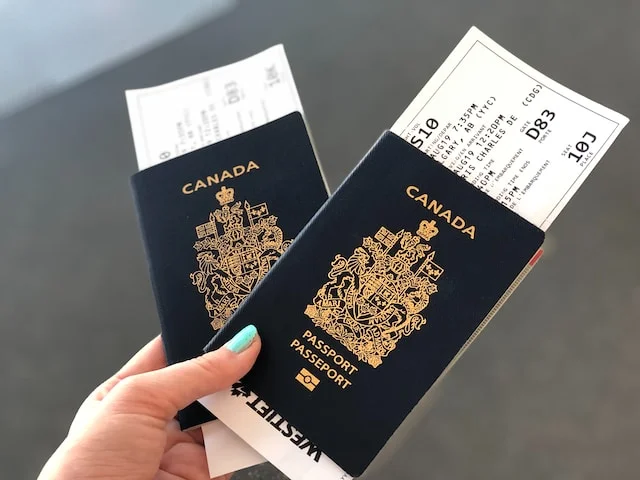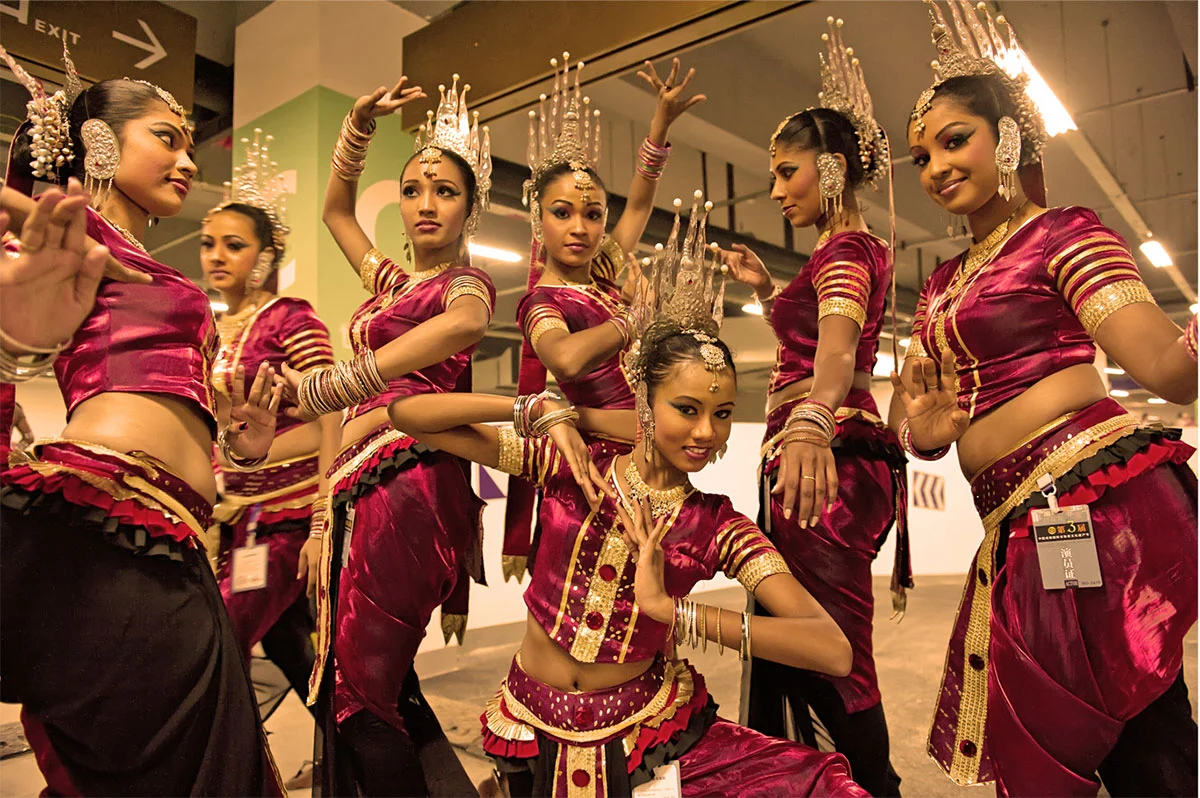Event management companies in Sri Lanka
Incentive
travel
Incentive travel serves as a powerful motivational tool, providing participants with not only a reward but also an opportunity to explore new destinations, experience different cultures, and create lifelong memories.

About
Incentive Travel
Incentive travel is a form of rewards and recognition program that motivates individuals or groups by offering them all-expenses-paid trips as a reward for achieving specific business goals or targets. It is a powerful tool used by organizations to inspire and incentivize their employees, departments, partners, or VIP clients, by offering them the opportunity to experience unique and memorable travel experiences.
Incentive travel programs can take various forms, such as individual travel rewards or group travel experiences, and are often designed to align with the objectives and values of the organization. These programs typically include a carefully planned itinerary with activities, excursions, and events aimed at creating a positive and rewarding experience for the participants
The benefits of incentive travel extend beyond just a simple reward. They can boost employee morale, enhance employee engagement, increase productivity, foster teamwork and collaboration, and ultimately drive business performance. By offering incentive travel, companies can show appreciation for their employees’ hard work and incentivize them to achieve higher levels of performance and success.
Incentive travel
When To Visit
In the midst of searching for Sri Lanka travel tips, visitors will find out that this popular destination generally maintains good weather but the country has two annual monsoons that affect different parts of the country during different times. The southwest monsoon will bring in rains to the southwest and central hills from late May to late September. However, there will not be continuous rainfall.
The North-East monsoon blesses the North-East of the country with rain from November to February but sporadic rainfalls can also be experienced in March and April. The hottest month in the country is April with an average temperature of 32 Celsius except in the hills where scattered showers and winds will be experienced generally in the period of September to November. The tea gardens and hill stations are over 2000 meters high from sea level.
Visa Regulations
All nationalities require a full passport that must be valid for 6 months beyond the intended length of stay and it is compulsory to obtain visa prior to arrival in Sri Lanka. Travellers heading over for business are also required to obtain a business visa to Sri Lanka.
Extensions can be arranged simply by visiting the emigration and immigration department.
Due to the bilateral relationship between the countries, Maldives and Singapore passport holders do not require visa to enter Sri Lanka.
Visit Official website to apply for visa.

Do’s and Don’ts
when traveling in Sri Lanka
It is always best to consume bottled water which is readily available and can be bought from all the hotel bars, restaurants and local shops. Please ensure that throughout your stay you drink as much water or soft drinks in order to avoid dehydration.
Voltage is 230 V, but you may need an adapter in most hotels, since the type of pin can be different to the one on the plug base.
All recognised credit cards are accepted. However it is important to check if a service charge is levied. Refrain from allowing any person to take your credit card away from you for payments.
ATMs are available island-wide and the use of credit cards are also encouraged and accepted by most establishments.
Sea bathing can be dangerous in certain places due to the strong currents, especially during the monsoon period. Therefore sea bathing should be enjoyed at your own risk. Please respect the local people when swimming or sunbathing as being topless or nudity is prohibited. Always remember to use the best sunscreen lotion as the sunrays can be strong.
In general Sri Lankans love having their picture taken, but it is common courtesy to ask for permission. Taking photographs of dams, airports, road blocks or anything associated with security is forbidden. Do not pose beside or in front of a statue of the Buddha as this is considered extremely disrespectful.
Entertaining drivers is not encouraged as this could lead to familiarity. However you could use your discretion when making a decision. Refrain from offering liquor to drivers even after working hours, as in a case of an emergency in the night the driver must be able to drive.
It is suggested that you use a mosquito repellent. Most hotels will provide this to you. If not these are freely available in local shops. Mosquito coils are not recommended. Mosquito repellent oils which can be applied on your body when sitting out in the evenings are also available. You are advised to test it on your skin at least one hour before use.
To Sri Lanka can be easily obtained on line by login in to www.eta.gov.lk
This can be done from your hotel either through the operator or some hotels provide direct dialling facilities from your room. You need to dial “00″ followed by the country code of the respective country followed by the area code and the number.
Various pre-paid mobile SIM connections are available in Sri Lanka & anyone can purchase one at the airport.
Most hotels have a regular doctor visiting the hotel. Therefore should you require medical attention, please consult the resident doctor through the reception. If not, you may speak to your driver/guide.
Casual wear is acceptable. However, swim wear is accepted only around the pool or beach areas and most certainly not inside the hotel. One must be properly attired when visiting temples and other places of worship. Long dresses and trousers are recommended for such visits.
The world’s finest tea and spices are grown here. Sri Lankan precious gemstones are world famous. A wide range of Batiks, Silver & Brassware, Ornaments and Jewellery are found here. Branded clothing and Ceramic ware are available on popular offers. Prices cannot be bargained in shopping malls but in other markets or shops you may be able to negotiate on the quoted prices.
As a leading tourist destination, Sri Lanka holds one of the best hygienic records in Asia, where stomach complaints are not common. Nevertheless, it is good to comply with the following guidelines:
- Most importantly use bottled water for drinking or rinsing your mouth. To avoid inferior quality water, it is recommended that the water bottles are purchased from supermarkets or recognised shops only.
- Coconut water is a solution for an uneasy stomach.
- Using the fingers for eating is a norm in Sri Lanka and certainly not considered to be unhygienic.
Please keep your travel documents and other valuables in a safe place.
Refrain from leaving your travel documents, money and other valuables unattended in the hotel room. It is recommended that you store such items in the safety locker in the room or alternatively in the safety locker at the reception.
The majority of the population is Sinhalese 74%, Tamils 17%, Muslims (Moors & Malays) 7.7%, Burghers (descendants of the Portuguese, Dutch and English) and others 0.3%.
Sri Lanka is generally a very safe country with a low crime rate. Walking around on your own during reasonable hours (not late at night) is safe. However, it is recommended that you take note of the following
- During your holiday, people may approach offering cheap transportation, day tours, excursions and even overnight tours – be cautious of such offers as at times there could be the possibility of extraction of money in different ways.
- Such individuals may look simple and friendly – but looks can certainly be deceptive. All we recommend is, if you do want to go on any day tours or overnight excursions, to book such tours through responsible parties, who would not only deliver value for money but also give due consideration to health and safety.
- When using the local mode of transportation, it is always best to negotiate and agree on a price before you start the journey.
- We always recommend that you interact with the local community to get a better feel of the destination. However be seriously cautious when and where to draw the line. Here are a few more well established ‘scams’ but remember that the con artists will always come up with new ones
- You may be shown copies of sponsorship forms of Orphanages, Deaf & Blind Schools and Places of Worship, etc – these may not be from bona fide organisations, so please be watchful.
- You may be offered valuable products and even gemstones at real bargain prices – remember there could always be a catch to it.
For more detailed information. Please refer to our FAQ page.


